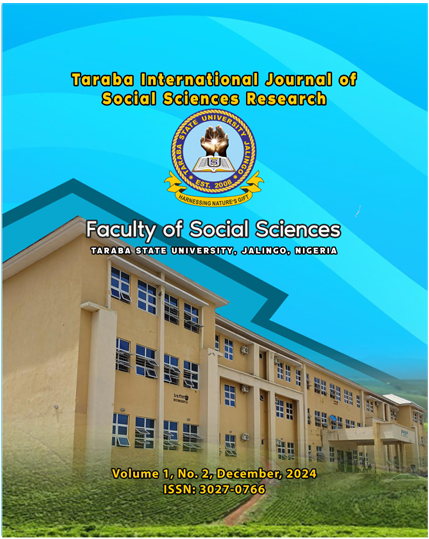INTERNAL SECURITY OPERATIONS AND THE COUNTERING OF IMPROVISED EXPLOSIVE DEVICES IN NORTHEAST NIGERIA: EVIDENCE FROM BORNO AND YOBE STATES
Keywords:
Internal Security Operations, Improvised Explosive Devices, Counterterrorism Strategies, Borno and Yobe State, North-East NigeriaAbstract
This study adopts a mixed-methods approach to investigate the strategies of countering improvised explosive devices (IEDs) in internal security operations in Nigeria’s North-East Geopolitical Zone, focusing on Borno and Yobe States. The research integrates quantitative data from official security reports with qualitative insights from interviews with military personnel, law enforcement officers, and local stakeholders. The study hinges on collective security theory, the study revealed that combating insurgency in the North-East region of Nigeria, particularly in Borno and Yobe States, necessitates a multidimensional approach involving military, political, socio-economic, and international strategies. Key military interventions include Operation Lafiya Dole, which reclaimed territories from Boko Haram, and the Multinational Joint Task Force (MNJTF), which disrupted cross-border insurgent supply chains. Community-based initiatives, such as intelligence-sharing with vigilante groups and public awareness campaigns, have enhanced Improvised Explosive Device (IED)
detection and reporting. Additionally, Explosive Ordnance Disposal (EOD) units and strengthened border security measures have significantly reduced the flow of explosive materials. On the political front, the North-East Development Commission (NEDC) has spearheaded rehabilitation and relocation efforts by restoring critical infrastructure. This study recommends among others a
comprehensive approach that integrates advanced counter-IED technologies, enhanced intelligence sharing mechanisms, and targeted capacity-building for security forces. Moreover, addressing the root causes of insurgency, such as poverty, and unemployment, is crucial for reducing the recruitment and radicalization of vulnerable populations.

